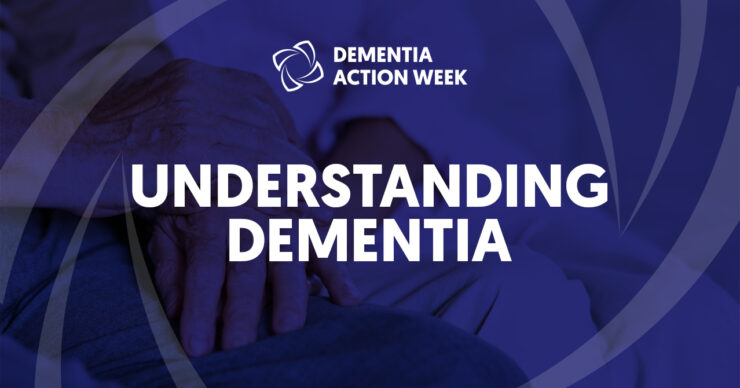
19
May 2025
Understanding Dementia: Why Early Diagnosis Matters
At Chadwick Lawrence, our Dementia Committee is dedicated to raising awareness and supporting individuals affected by dementia. From hosting charity bake-offs to sharing valuable information, our goal is to educate both our staff and the wider community. As part of Dementia Action Week, we’re launching a series of daily blogs covering key topics – from understanding dementia to exploring the importance of early diagnosis.
We begin the week with a foundational topic: Understanding Dementia and why early diagnosis can make a life-changing difference.
What is Dementia?
Dementia isn’t a single disease; it’s a syndrome – a group of related symptoms – that affects memory, cognition, and the ability to perform daily tasks. While forgetfulness is often the first sign, dementia also impacts reasoning, communication, mood, and even physical coordination.
In the UK, nearly one million people are currently living with dementia. That number is projected to rise to 1.4 million by 2040, driven by an ageing population.
Although the risk increases significantly after the age of 65, dementia is not a normal part of ageing, and early warning signs should never be overlooked.
Common symptoms of dementia
- Memory loss
- Confusion or disorientation
- Difficulty with speech or understanding language
- Changes in mood or personality
- Trouble performing familiar tasks
- Loss of coordination or balance
Why early diagnosis matters
Being diagnosed with dementia can be daunting. An early diagnosis is not just about naming the condition; it opens the door to crucial support, interventions, and planning. Here’s how catching it early can change lives.
Access to treatment and therapies
Early-stage treatments and lifestyle changes can slow progression, enhance cognitive function, and preserve quality of life for longer.
Time to plan ahead
People living with dementia can be active participants in planning their future care, legal affairs, and end-of-life preferences.
Support for family and caregivers
Early diagnosis allows families to prepare, seek counselling, and access training or support networks, improving outcomes for everyone involved.
Participation in clinical trials
An early diagnosis may offer eligibility for research studies and experimental treatments not otherwise available.
Improved safety
Recognising dementia early helps prevent dangerous mistakes such as medication errors, driving accidents, or getting lost.
Mental and emotional clarity
A clear diagnosis brings relief, direction, and understanding – providing validation for both the individual and their loved ones.
Dementia and Alzheimer’s: The importance of detecting cognitive decline early
Historically, Alzheimer’s disease was diagnosed only when symptoms were severe enough to impact independence. But advances in medicine have shown that Alzheimer’s often begins with Mild Cognitive Impairment (MCI) – subtle memory issues that don’t yet interfere with daily functioning.
While not all MCI leads to Alzheimer’s, it’s often the first sign of the disease. Diagnosing this stage early allows individuals and their families to prepare for what may come.
“It would have been a lot better if I could have had a conversation about it. At least I would have had the chance to ask questions.”
(Alzheimer’s Society, 2025, p.11)
Modern tools can now detect signs of Alzheimer’s as early as 20 years before symptoms appear, during what’s called the preclinical stage. Although currently used mostly in research settings, these advancements highlight the power of early intervention (Mayo Clinic, 2025).
Take action early
If you or someone you know is experiencing persistent memory issues or confusion, don’t wait. Speak with a healthcare professional.
Early diagnosis isn’t the end of the story – it’s the first step towards proactive care, informed choices, and a better quality of life.
At Chadwick Lawrence, we remain committed to supporting those affected by dementia – through education, compassion, and community engagement.
Stay tuned throughout Dementia Action Week for more informative blogs on how we can all make a difference.
Or take a read of our blogs from 2024’s Dementia Action Week below!
Dementia: Selling a Property and Court of Protection Involvement
Where Can I Get Support from When Living with or Caring for Someone with Dementia?
Dementia: Knowing You’re Going to Lose Them Twice
- Like this ? Share with friends





